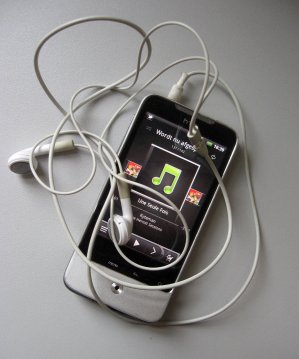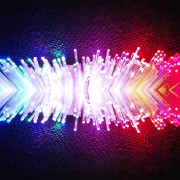
Researchers at Eindhoven University of Technology together and the University of Central Florida, report in the journal Nature Photonics the successful transmission of a record high 255 Terabits/s over a new type of fiber allowing 21 times more bandwidth than currently available in communication networks. This new type of fiber could be an answer to mitigating the impending optical transmission capacity crunch caused by the increasing bandwidth demand.
The new fiber has seven different cores through which the light can travel, instead of one in current state-of-the-art fibers. This compares to going from a one-way road to a seven-lane highway. Also, they introduce two additional orthogonal dimensions for data transportation – as if three cars can drive on top of each other in the same lane. Combining those two methods, they achieve a gross transmission throughput of 255 Terabits/s over the fiber link. This is more than 20 times the current standard of 4-8 Terabits/s.
(Link: phys.org, Photo by Mephisto, some rights reserved, based on a photo by Daniel Mayara)

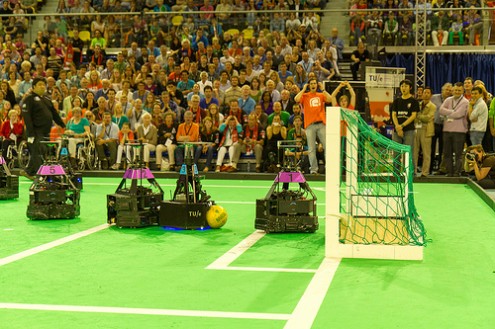

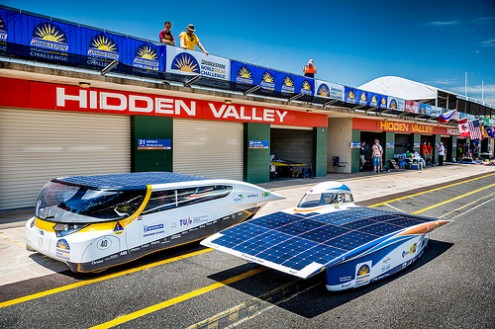
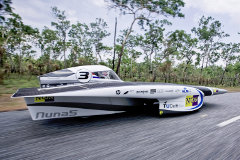 A team of students from the Eindhoven University of Technology has created a solar powered family car that is street legal,
A team of students from the Eindhoven University of Technology has created a solar powered family car that is street legal, 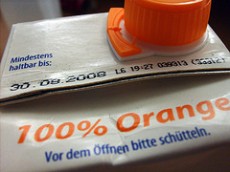
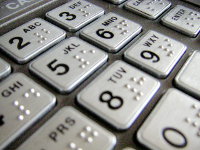 Two students of the Eindhoven University of Technology have discovered that the least safe code for your bank card (PIN) is 2580.
Two students of the Eindhoven University of Technology have discovered that the least safe code for your bank card (PIN) is 2580.